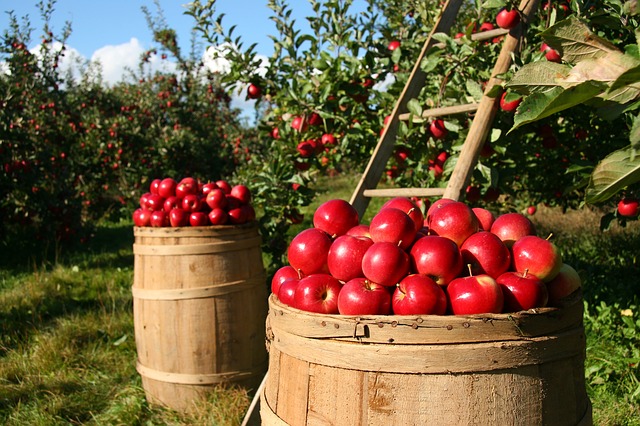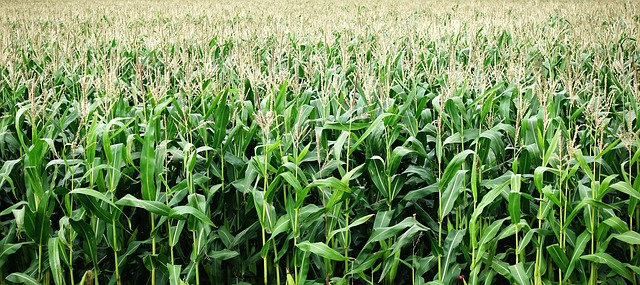
10 Advantages And Disadvantages Of Organic Farming In India
Organic farming has really changed the farming game. It has been looked at as the best alternative against farming that uses all sorts of pesticides and chemicals in its process. To learn more about this type of farming, we are breaking down its ten advantages and disadvantages. These points will give you an insight on the importance of organic farming.
Contents
Advantages
1. Natural Environment
Organic farming usually goes down in a natural environment. Unnecessary enclosures are not used for the crops or plants. This way the productivity is increased and is way better compared to closed spaces. An open and natural area for growing the crops would give them wild and instinctive growing nature. This is ideal for the crops and is one of the factors that leads to the plants being organic.
2. No Chemicals

Unlike other forms of farming, organic farming does not involve any artificial sources like chemicals to drive away pests or to speed up the process of farming. These chemicals are often used in commercial and industrial farming methods. However, organic farming stays true to its title. Its method is true to its natural core and does not use anything that may be of harm to its consumers. Any type of chemical is not entertained in the organic farming industry.
3. Eye On You
Unlike any other procedure, organic farming has a very strict supervision schedule. The reason for this extreme regulation is because of the importance to keep the label organic. It is very difficult to do so as most brands use artificial aspects in their farming. There are various methods of organic farming and its standards must be maintained in order to remain organic. This ensures that customers buying the end product receive what they’re truly looking for.
4. Environmentally Friendly
Among the advantages of organic farming, this one stands out the most. Today, almost the entire sector of industrial farming consists of chemicals that ruin the environment. However, when you have something like organic farming to replace it, a huge benefit is received. Organic farming does not use any form of chemical nor does any form of pollution happen because of it. This makes it way better than regular farming. The whole world suffers because of the ignorant methods of regular farming including animals. Organic farming is definitely the way to go.
5. Healthier And Tastier
Since non-organic farming produces results that are way too suspicious when eaten, it is obvious that it isn’t good for health either. Organic farming in kerala for example are known to keep the crops growing properly. They are given time and care unlike non-organic sectors that pump the results with chemicals in order for it to grow faster. These type of sectors are only commercial-minded and are least bothered about the satisfaction and health of the consumer. Since the fruits and vegetables grown organically are given longer time to flourish, they automatically are way better in terms of nutrition and taste.
Disadvantages
If you’re looking to know how to start organic farming, these pointers should be kept in mind. Now that we’ve seen the positive side to organic farming, let us move on to the negative. Although it does have a lot of useful aspects, some things could go wrong. The following are the disadvantages of organic farming.
1. Expensive Products
One of the major problems of organic farming methods is that sometimes it can get a bit costly. Some products related to organic farming are too expensive, leading to some common people to not be able to afford it. In a country like India where most of its livelihood are farmers, organic farming brings a huge problem to it. However, organic farming in Tamil Nadu have had some success stories.
2. More Labor

Organic farming is a sector that requires a lot of patience. This is because pests and others obstacles must be tackled manually. Unlike in non-organic farming, the use of pesticides and other chemicals are not permitted. This makes the work of the farmer harder as constant attention and care is needed. Due to the constant attention, a lot of time is consumed. Organic farming has to be executed well which needs a lot of time and not to forget weed-prevention.
3. High MRP
It is almost obvious that due to the extreme care taken to go along with organic farming, the results would be kept at a high price. Once sold to the market, most of the place is devoted to the sale of these organic fruits and vegetables. Most people do that approve of organic products because of this. The items sold in the market are half the price of non-organic products. So, we can say that organic items are expensive and not every consumer is willing to pay the price for it.
4. Cross Breeding Problem
The seeds of GMO plants once planted, create GMO crops. These crops then produce seeds and the pattern continues. This makes it very difficult to tell from the organic and GMO crops. This has become a huge problem in the organic farming sector. This could ruin the future of organic planting as a whole.
5. Labor Charges
Labor charges refer to the amount payable to someone who has been involved in the building ot working of something. Like we said earlier, in organic farming ventures, the amount of labor is high and it takes a lot of time and patience to the get work done. If one is not able to do it by oneself, a lot of labor would be hired which increases the payment that those laborers deserve.
However, people are starting to prefer organic farming and are performing such practises like – mushroom cultivation, aloe vera farming, spirulina cultivation, sugarcane cultivation, banana cultivation, pomegranate cultivation etc. in various parts of our country.


